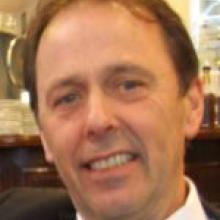
During a visit to the North Otago Federated Farmers annual meeting in Oamaru last week, Mr Nicolson said stepping down was going to be "fine".
"I've conditioned myself since last Christmas to do the exit and, graceful or ungraceful, it'll be happening on the 1st of July."
The date had come around quite quickly but there was no looking back and he would be ready for it, he said.
While unsure of what the next phase of his life was going to entail, he could still be a farmer - "the grass is still growing where I live" - although he was not sure it was "easy to say goodbye" to farmer politics.
Mr Nicolson, a Southland sheep and beef farmer, has been involved with the farmer lobby group since the late 1980s.
Born and bred in Southland, he worked for a time in the forestry industry before returning to the family sheep farm at Waimatua, southeast of Invercargill.
Before being elected national president three years ago, he was the federation's vice-president for three years and was first elected to the national board in 2003. He was Southland president from 2002 to 2005.
Representing farmers had mostly been a big privilege and a highlight had been seeing membership grow, which he attributed to the hard work by everyone in the organisation - from the volunteers at grassroots level through to frontline staff.
Another highlight was helping to secure the huge reduction in floating interest rates. It had also lobbied hard to get some sort of parity with the urban sector with broadband funding - "we didn't want to be second-rate citizens in our own country" - and there was the lobbying over the Emissions Trading Scheme.
The predicted annual cost per farm, from 2015, had reduced 90% - from $30,000 under Labour to $3000 under National - for farm-based methane and nitrous oxide emissions.
It had been tough being elected at the transition from a Labour government to a National one and being told by National supporters that it would be easy for him under National. Federated Farmers was an independent and apolitical organisation - the only independent rural advocacy group - and it only existed by farmers' goodwill.
While he admitted he had possibly been naive, it had alerted him to the "dirtiness of politics", even among farmers.
Mr Nicolson always argued "high principles win every time" and he hoped the organisation never failed to remember "Don't play politics, just play principles and you can hold your head up every time".
The role had kept him busy - it was not uncommon to get 200 emails a day - and there was also the travel. He joked he probably held a record at the Ibis Wellington Hotel where he reckoned he had stayed 196 times, amounting to about 600 nights.
The position had taken him around the world and he had observed how other farmers lived and worked and what they lobbied for from their governments.
The challenge facing the rural sector was educating New Zealand that farming was a vital part of the economy.
"You need to have farmers viable or else you don't have an economy."
When he went farming, just after the peak of the subsidy years, sheep numbered 70 million - there were now 32 million.
The lamb crop was the lowest since 1961 - but things were now starting to get back in balance and he believed the sheep meat industry was coming down to a level where it was going to be sustainable long term.
